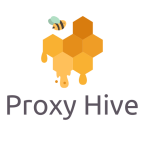The Covid-19 pandemic has brought about significant changes in various industries, accelerating digitization and leading to a surge in online data. As a result, data mining and collection have become crucial for analytics and decision-making. Web scraping has emerged as a popular method to gather data and improve data quality. However, it is essential to ensure that all scraping efforts are conducted ethically and in compliance with relevant laws and regulations.
When engaging in web scraping, it is important to prioritize responsible data extraction, ethical practices, and data privacy. By following best practices and guidelines, users can maintain transparency in web scraping and uphold legal compliance. Additionally, developing web scraping policies can further guide users and organizations in conducting ethical data collection.
Key Takeaways:
- Web scraping is a valuable method for data collection in the age of digitization.
- It is crucial to prioritize ethical practices and responsible data extraction.
- Data privacy should be respected and protected during web scraping activities.
- Transparency and legal compliance are essential in maintaining ethical web scraping.
- Developing web scraping policies can provide guidance and ensure ethical practices.
The Importance of Ethical Scraping
The Covid-19 pandemic has resulted in a significant surge of data online, making data mining and collection crucial for analytics and decision-making. Web scraping has emerged as a popular method to gather valuable insights from this vast amount of data. However, it is essential to prioritize ethical data scraping practices to ensure data quality and maintain trust.
Web scraping enables the collection of relevant, reliable, complete, timely, and accurate data. By scraping data from public APIs and using user agent strings, websites can be respected, and data privacy can be upheld. It is crucial to scrape data at a reasonable rate to avoid overwhelming websites and potentially causing disruptions. Additionally, organizations should develop formal data collection policies to guide developers and ensure ethical practices.
Using ethical web scraping techniques is not only a matter of legal compliance, but it also demonstrates respect for the content owners and users. Adhering to ethical practices promotes transparency, trust, and the responsible use of data.
By following ethical scraping practices, organizations can navigate the digital space responsibly and promote responsible data extraction. Respecting website guidelines, utilizing public APIs, scraping data at a reasonable rate, and implementing data collection policies are key steps in ensuring ethical web scraping. By doing so, organizations can harness the power of web scraping while upholding data privacy, legal compliance, and maintaining trust within the online community.
The Importance of Ethical Scraping:
Web scraping plays a crucial role in analyzing and leveraging the abundance of data available online. However, it is essential to conduct web scraping in an ethical manner to maintain data quality, respect privacy, and uphold legal compliance. Ethical scraping ensures that the collected data is reliable, complete, and accurate, providing valuable insights for informed decision-making.
- Respecting Website Guidelines: Websites often have robots.txt files that outline which parts of the website can be crawled. It is important to adhere to these guidelines, avoiding scraping restricted areas and respecting the website owner’s intent.
- Utilizing Public APIs: If a website provides a public API, it is recommended to use it instead of scraping the data. Public APIs offer a structured and authorized way to access and gather data, ensuring transparency and legality.
- Scraping Data at a Reasonable Rate: It is crucial to scrape data at a reasonable rate to avoid overwhelming websites with excessive requests. By maintaining a balanced scraping pace, websites’ performance and functionality are not compromised.
- Implementing Data Collection Policies: Organizations should develop formal data collection policies that outline ethical scraping practices. These policies serve as guidelines for developers, ensuring that scraping efforts align with ethical standards, privacy regulations, and legal obligations.
Best Practices for Ethical Scraping
When engaging in web scraping, it is essential to follow best practices to ensure ethical and responsible data extraction. By adhering to these guidelines, you can maintain transparency, respect websites, and protect data privacy.
1. Utilize Public APIs
If a website provides a public API, it is recommended to use it for data extraction instead of scraping. Public APIs are specifically designed for data access, making it a more ethical and efficient method. By accessing data through public APIs, you can ensure that you are extracting information in a manner that aligns with the website’s intentions and guidelines.
2. Respect Robots.txt Files
Websites often have a robots.txt file that indicates which parts of the website can be crawled by bots. It is crucial to respect these guidelines and avoid scraping any restricted areas. By doing so, you demonstrate respect for the website’s owner and their control over their content. You can easily access the robots.txt file of a website by appending “/robots.txt” to the website’s URL.
3. Scraping Rate and User Agent String
Scraping data at a reasonable rate is an important aspect of ethical web scraping. Excessive scraping can put a strain on the website’s server and impact the user experience for other visitors. It is recommended to set a scraping rate that allows for efficient extraction while minimizing disruption to the website’s operations.
Additionally, using a user agent string identifies your scraping activity to the website. Providing a clear and identifiable user agent string allows website owners to recognize your intentions and potentially reach out if they have any concerns or questions regarding your scraping activities.
4. Develop a Data Collection Policy
Developing a formal data collection policy can guide developers and ensure that ethical practices are followed consistently. This policy should outline the principles and guidelines for web scraping, including the websites and types of data that are permissible to scrape, the scraping rate to be used, and the steps to respect data privacy and ownership. Having a clear policy in place promotes transparency and accountability within your organization.
Following these best practices for ethical scraping will not only ensure that you are conducting data extraction in a responsible manner but also foster positive relationships with website owners and maintain the integrity of the data you collect.
Conclusion
In conclusion, practicing ethical web scraping is essential for responsible data extraction. By following best practices and guidelines, organizations can ensure data privacy, maintain legal compliance, and respect the websites they scrape data from.
One of the key aspects of ethical web scraping is using public APIs whenever possible. This not only allows for smoother data extraction but also demonstrates respect for the website owner’s terms and conditions.
Respecting the guidelines set out in a website’s robots.txt file is another important practice. This file indicates which parts of the website can be crawled, and adhering to these guidelines helps maintain transparency and prevents any unintended breaches of privacy.
Furthermore, organizations should implement a formal data collection policy that outlines the ethical practices to be followed by developers. This policy serves as a guide to ensure that data is collected responsibly and in line with legal requirements.
By adopting these ethical web scraping best practices, organizations can navigate the digital landscape responsibly, protect data privacy, and promote responsible data extraction for the benefit of all stakeholders involved.
FAQ
What is web scraping?
Web scraping is the process of extracting data from websites by using automated tools or software.
Why is data mining and collection crucial for analytics?
Data mining and collection are crucial for analytics as they provide the necessary information and insights that businesses and organizations use for decision-making and strategy development.
Why is data quality important in the context of web scraping?
Data quality is important in web scraping to ensure that the collected data is relevant, reliable, complete, timely, and accurate, enabling more accurate analysis and decision-making.
Is web scraping legal?
Web scraping can be legal if it is done within the boundaries defined by the website’s terms and conditions, respects robots.txt files, and complies with data privacy regulations.
How can I ensure ethical web scraping?
To ensure ethical web scraping, it is recommended to use public APIs when available, respect the guidelines set in robots.txt files, scrape data at a reasonable rate, and develop a formal data collection policy.
What are public APIs and how can they be used for web scraping?
Public APIs are interfaces provided by websites that allow developers to access and retrieve data in a structured and authorized manner. Utilizing public APIs for web scraping is a more ethical approach than directly scraping data from websites.
What is a user agent string and why is it important in web scraping?
A user agent string is a piece of information sent by a web scraping tool to identify itself to the website being scraped. It is important in web scraping to identify the scraper and adhere to any specific requirements or limitations set by the website.
Why should data scraping be done at a reasonable rate?
Scraping data at a reasonable rate ensures that websites are not overwhelmed with requests, which can affect their performance. It is important to be mindful of the server’s capacity and respect the website’s resources.
How can a formal data collection policy help in ethical web scraping?
A formal data collection policy provides guidelines and standards for developers to follow when performing web scraping. It promotes ethical practices, ensures legal compliance, and helps maintain transparency and accountability in the data extraction process.

